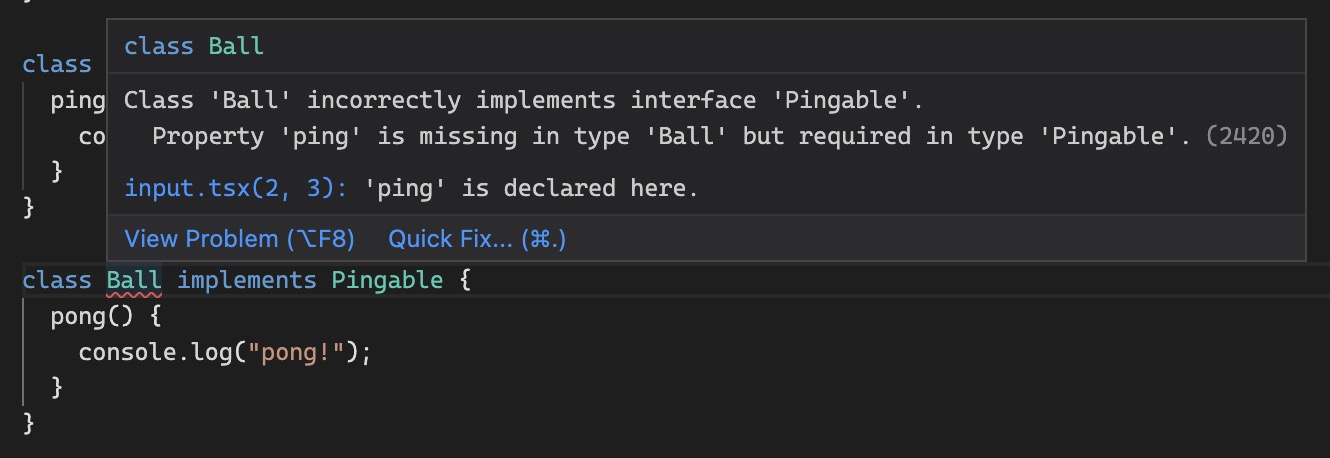Written by
Qizheng Han
on
on
TS思考 - 类遗产
类遗产 不是什么高级的词汇,所有 TS 类相关的都在这里了~
implement
implement 可以用来检测一个类是否符合一个具体的 interface 的定义。
interface Pingable {
ping(): void;
}
class Sonar implements Pingable {
ping() {
console.log("ping!");
}
}
class Ball implements Pingable {
pong() {
console.log("pong!");
}
}

可以看到 Ball 这个类因为没有实现 ping 方法而被发现然后揭发。
那么 type 定义的类型可以被 implement 吗?
答案是 可以的!
implement 只检查不做其他
interface Checkable {
check(name: string): boolean;
}
class NameChecker implements Checkable {
// Parameter 's' implicitly has an 'any' type.
check(s) {
// 但是这里没有错误
return s.toLowercse() === "ok";
}
}
TS 会检测 s 作为参数没有给具体的类型。而不会因为 类NameChecker implement Checkable 就会自动帮 check 函数的参数赋予类型。
implement 也不会帮助自动补全属性, 比如
interface A {
x: number;
y?: number;
}
class C implements A {
x = 0;
}
const c = new C();
// Property 'y' does not exist on type 'C'.
c.y = 10;
y 属性没有因为 类C implement A 就自动生成。
extends
extends 可能 更像我们平时理解的 继承。
会继承 基类 所有的属性 且可以自己定义额外的属性。
class Animal {
move() {
console.log("Moving along!");
}
}
class Dog extends Animal {
woof(times: number) {
for (let i = 0; i < times; i++) {
console.log("woof!");
}
}
}
const d = new Dog();
// Base class method
d.move();
// Derived class method
d.woof(3);
如果不遵循,则会报错
class Base {
greet() {
console.log("Hello, world!");
}
}
class Derived extends Base {
// Make this parameter required
greet(name: string) {
// Property 'greet' in type 'Derived' is not assignable to the same property in base type 'Base'.
// Type '(name: string) => void' is not assignable to type '() => void'.
console.log(`Hello, ${name.toUpperCase()}`);
}
}